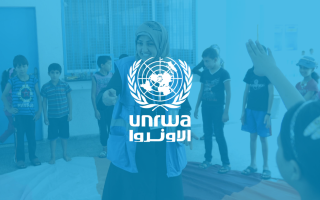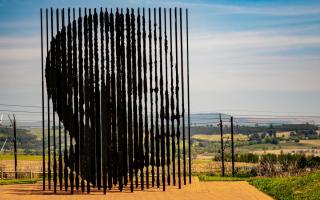The Nelson Mandela Global Academy for Social Change
The Nelson Mandela Global Academy for Social Change is a core initiative of the Nelson Mandela Project for Social Change, developed in partnership with globally renowned universities and the Nelson Mandela Foundation. It responds to rising inequalities and polarization highlighted in the 2024 Human Development Report. The academy will provide a carefully selected cohort with knowledge, tools, and capabilities to promote social change, foster dialogue, bridge divides, and expand their networks. It is grounded in Nelson Mandela’s leadership values of resilience, humility, and unity.
As indicated in the 2024 Human Development Report, increasing inequalities and societal polarization threaten to hinder peace and development. Aiming to reverse such a trend, the Global Academy will impart knowledge and skills for promoting the social changes necessary to reduce inequalities and social polarization.
It will provide a cohort of carefully selected participants with an opportunity to:
- Explore key knowledge and practical tools in the field of social change;
- Empower themselves with key capabilities needed to bridge divides and foster dialogue;
- Expand their networks’ reach to support their efforts in driving sustainable social change within their communities and beyond.
The Nelson Mandela Global Academy for Social Change is a core initiative of the Nelson Mandela Project for Social Change, developed in partnership with a group of globally renowned universities and the Nelson Mandela Foundation. The academy is grounded in Nelson Mandela’s approach to leadership, such as resilience, humility, and a capacity to bridge divides in a context of polarization and institutionalized racism.
Upon successful completion, participants will be issued a certificate by UNSSC and the Nelson Mandela Project's partner universities.
By the end of the global academy, participants will be able to:
- Describe the root causes of inequalities and increased polarization;
- Explain how inequality and polarization contribute to the demise of peace and development;
- Recall strategies to promote social change, aimed at reducing inequalities and polarization, as individuals and in the context of their professional activities. This is achieved, e.g., by learning and practicing critical leadership, communication, and consensus-building skills throughout the course;
- Refer to a global network of peers, committed to promoting social change, in favor of more equitable and cohesive societies.
The Global Academy will be delivered entirely online, via live, moderated, interactive webinars (32 classes, distributed over 5 months, amounting to 100 hours of overall commitment, including asynchronous activities).
It features a comprehensive curriculum covering substantive sessions, alternating with leadership-related and networking sessions, competency labs, and a cross-cutting art project.
In parallel, the programme will provide participants with the opportunity to exchange and collaborate between sessions, through UNSSC's exclusive UN Learn online platform.
In addition to sessions for opening, closing, and post-programme action planning, the Global Academy will cover the following themes and competencies (please click here to access its tentative agenda):
- Unpacking Social Change in the Context of a Planetary Vision of Development
- Nelson Mandela's Leadership
- Bridging Divides: Overcoming Polarization in a Post-Truth World
- Rethinking Identity and Belonging (Competency Lab)
- Adaptive Leadership
- Resource Mobilization (Networking Session)
- Social Change and Conflict: What Is the Role of Social Movements in Durable Peacebuilding?
- Conflict Intelligence (Competency Lab)
- Leading Social Change in Africa: The Role of Regional Integration
- The Governance of Digital Transformation in a Multicultural Society: Opportunities and Risks
- Social Entrepreneurship and Social Innovation: AI for Social Good
- Leadership Capabilities for Social Change: Bridging Divides
- Process Facilitation / Multistakeholder Engagement (Networking Session)
- The Role of Human Rights and Racial Justice
- Consensus Building and Effective Communication (Competency Lab)
- Strengthening Youth Leadership for Social Change: Building Agency and Connections
- Peer Coaching (Competency Lab)
- Rethinking Urban Governance: Global Challenges and the Geopolitics of Subnational Governments
Following a competitive selection process, 40 highly motivated change-makers will be chosen as participants.
Participants will be selected based on their motivation statement and track record in promoting social change, whether in the public, non-profit, or private sectors. They must be able to demonstrate how they envisage applying the knowledge and skills acquired through the programme to increase the impact of their engagements in favour of social change.
The selection will primarily target young rising leaders (30 years old as the median age, with five or more years of relevant experience in the field of social change).
Candidates must commit to attending at least 80% of the online sessions to receive a certificate of completion at the end of the programme.
US$3,500 per participant.
Photo credit: UN Photo/Lois Conner





